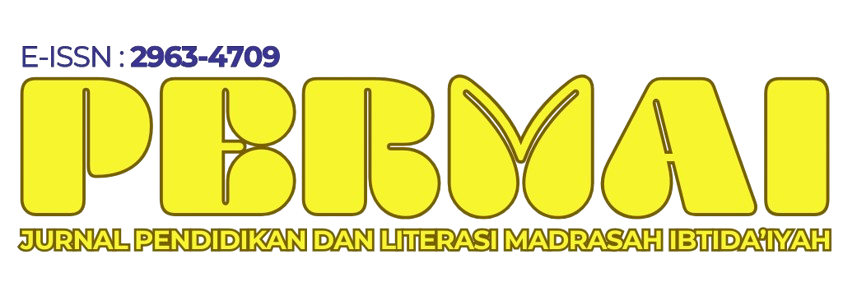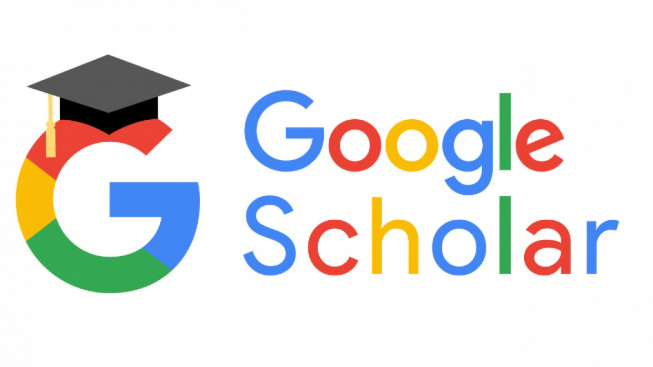INOVASI SISTEM PEMBELAJARAN TEMATIK INTEGRATIF BERBASIS ANDROID SEBAGAI MEDIA PEMBELAJARAN EFEKTIF DI SEKOLAH DASAR
DOI:
https://doi.org/10.63889/permai.v2i2.204Abstract
The development of models in the era of digitalization has become an important part of the education sector. The urgency of this research is to investigate digital-based problem based learning models for elementary school teacher education students. An important finding in this research is metacognitive awareness in problem based learning which is carried out on a digital basis, to facilitate the development of critical and creative thinking of prospective elementary school teachers. Problem based learning model to encourage student academic success. This research aims to develop an Android-based learning system to improve elementary school students' thematic learning. This research and development uses the simplified Borg and Gall model by Sukmadinata, which consists of preliminary studies, media development and media testing. The research subjects were fifth grade elementary school students in the Blora area, Central Java. Data collection was carried out using tests, questionnaires and interviews. The collected data was then analyzed qualitatively and quantitatively. Qualitative analysis uses the Miles and Huberman interactive model, while quantitative analysis uses a combined paired sample t test. The results of product testing for an Android-based thematic learning system report the value of the Paired Sample T Test. The signature for the post-test value is 0.012 < 0.05 or H0 is rejected. Thus, there is an influence of the use of the learning system in each study group on the consideration of student learning outcomes. So it can be concluded that the integrative thematic learning system developed is suitable for use by teachers and students in elementary schools to improve learning outcomes.
Keyword: Thematic Learning System, Effective Learning Media, Elementary SchoolReferences
Borg & Gall. (2003). Education Research. New York: Allyn & Bacon.
Diana, F. S., & Hisar, M. M. (2021). The Effect of Problem-Based Learning Model during Pandemic On the Thematic Learning Outcomes of Students in Elementary School. Jurnal Basicedu, 5(4), 2156–2163.
Dyer, J. H., Gregersen, H. B., & Christensen, C. M. (2009). Five “discovery skills” separate true inovators from the rest of us. Harvard Business Review.
Ghunu, N. M. S. (2022). The Challenges of Remote Area Elementary Schools in Thematic Curriculum Implementation. International Journal of Instruction, 15(2), 19–36. https://doi.org/10.29333/iji.2022.1522a
González?pérez, L. I., & Ramírez?montoya, M. S. (2022). Components of Education 4.0 in 21st Century Skills Frameworks: Systematic Review. Sustainability (Switzerland), 14(3), 1–31. https://doi.org/10.3390/su14031493
Hanifah, N., & Aryani, N. (2022). Android Based Educational Game Development to Improve Early Childhood Reading Ability. 14, 1123–1134. https://doi.org/10.35445/alishlah.v14i1.1053
Hediansah, D., & Surjono, H. D. (2019). Building Motivation and Improving Learning Outcomes with Android-based physics books: Education 4.0. Anatolian Journal of Education, 4(2), 1–10. https://doi.org/10.29333/aje.2019.421a
Izatovna, T. S. (2022). CENTRAL ASIAN JOURNAL OF Theoretical and Scientific Approach to the Psychology of Adolescent Twins in the Process of Social Adaptation. 2022(c).
Julia, J., Subarjah, H., Maulana, M., Sujana, A., Isrokatun, I., Nugraha, D., & Rachmatin, D. (2020). Readiness and competence of new teachers for career as professional teachers in primary schools. European Journal of Educational Research, 9(2), 655–673. https://doi.org/10.12973/eu-jer.9.2.655
Kurnikmah, A., Satria, T. G., & Valen, A. (2022). Development Of Fun Thinkers Book Media On Thematic Learning The Beauty Of Togetherness Theme For Fourth Grade Elementary School Students. Widyagogik, 9(2), 14–25.
Laakso, N. L., Korhonen, T. S., & Hakkarainen, K. P. J. (2021). Developing students’ digital competences through collaborative game design. Computers and Education, 174(August). https://doi.org/10.1016/j.compedu.2021.104308
Lee, E. (2020). The Effect of Smartphones Usability on High School Students’ Science Literacy Ability in Physics Learning. European Journal of Educational Research, 9(3), 921–934.
Miaz, Y. (2022). Development of Lkpd Based on PBL on Integrated Thematic Learning in Class V of Elementary School. 14(2016), 2299–2312. https://doi.org/10.35445/alishlah.v14i1.1284
Nieminen, J. H., Bearman, M., & Ajjawi, R. (2022). Assessment & Evaluation in Higher Education Designing the digital in authentic assessment : is it fit for purpose ? Designing the digital in authentic assessment : is it fit for. Assessment & Evaluation in Higher Education, 0(0), 1–15. https://doi.org/10.1080/02602938.2022.2089627
Ottenbreit-Leftwich, A. T., Kwon, K., Brush, T. A., Karlin, M., Jeon, M., Jantaraweragul, K., … Bhattacharya, P. (2021). The impact of an issue-centered problem-based learning curriculum on 6th grade girls’ understanding of and interest in computer science. Computers and Education Open, 2(October), 100057. https://doi.org/10.1016/j.caeo.2021.100057
Palupi, B. S., Subiyantoro, S., Triyanto, & Rukayah. (2020). Creative-thinking skills in explanatory writing skills viewed from learning behaviour: A mixed method case study. International Journal of Emerging Technologies in Learning, 15(1), 200–212. https://doi.org/10.3991/IJET.V15I01.11487
Reimers, F. M., Education, G., Initiative, I., & Schleicher, A. (2020). Sommario.
Riduwan, A. (2009). Realitas dalam Cermin Retak : Laba Akutansi dalam Bingkai Penafsiran Praktisi Bisnis Non-Akuntan. (110).
Sari, P. K., Arofatinajah, S., & Fajarianto, O. (2022). Development of Digital Comic on Thematic Learning to Improve Literature Skills of 5 th Grade Students in Elementary School. 24(April), 38–49.
Saundarajan, K., Osman, S., Daud, M. F., Abu, M. S., Pairan, M. R., & Kumar, J. A. (2020). Learning algebra using augmented reality. International Journal of Emerging Technologies in Learning, 15(16), 123–133. https://doi.org/10.3991/ijet.v15i16.10540
Sayono, J., Jauhari, N., Ayundasari, L., & Sulistyo, W. D. (2020). Development of projo bale model based on android application in history and local wisdom studies of Malang. International Journal of Emerging Technologies in Learning, 15(7), 4–16. https://doi.org/10.3991/IJET.V15I07.13219
Setiana, D. S., Purwoko, R. Y., & Sugiman. (2021). The application of mathematics learning model to stimulate mathematical critical thinking skills of senior high school students. European Journal of Educational Research, 10(1), 509–523. https://doi.org/10.12973/EU-JER.10.1.509
Songsom, N., Nilsook, P., Wannapiroon, P., Fung, C. C., & Wong, K. W. (2019). System architecture of a student relationship management system using Internet of Things to collect digital footprint of higher education institutions. International Journal of Emerging Technologies in Learning, 14(23), 125–140. https://doi.org/10.3991/ijet.v14i23.11066
Spreitzer, C., Hafner, S., Krainer, K., & Vohns, A. (2019). Effects of Generic and Subject-Didactic Teaching Characteristics on Student Performance in Mathematics in Secondary School: A Scoping Review. European Journal of Educational Research, 9(2), 445–455. Retrieved from https://pdfs.semanticscholar.org/ae67/7a0ae1fea47085cd3b204c160b51465743a0.pdf
Taar, J., & Palojoki, P. (2022). Applying interthinking for learning 21st-century skills in home economics education. Learning, Culture and Social Interaction, 33(April 2021). https://doi.org/10.1016/j.lcsi.2022.100615
Trilling, B., & Fadel, C. (2009). 21st Century Skills, Enhanced Edition: Learning for Life in Our Times. 244.
Voloshyna, V., Stepanenko, I., & Zinchenko, A. (2019). Moderating the Neuropsychological Impact of Online Learning on Psychology Students. European Journal of Educational Research, 9(2), 445–455. Retrieved from https://doi.org/10.12973/eu-jer.11.2.681
Wan Ahmad, W. F., & Ahmad Harnaini, A. F. (2022). Designing a Mobile Application for Children: Space Science. Journal of Information Technology Management, 14, 124–140. https://doi.org/10.22059/JITM.2022.84889
Widodo, W., & Chandrawaty, C. (2021). A new decade for social changes. Technium Social Sciences Journal, 18(21), 235–243.
Wiggins, G. P., & McTighe, J. (2011). The understanding by design guide to creating high-quality units. ASCD.
Winarni, E. W., Purwandi, E. P., Lusa, H., & Dadi, S. (2018). The Impact of Thematic Learning Integrated ICT in Tabot Bengkulu as Cultural Ceremony toward Social Interaction Knowledge in Elementary School. Asian Journal of Education and Training, 4(2), 70–74. https://doi.org/10.20448/journal.522.2018.42.70.74




.jpg)

